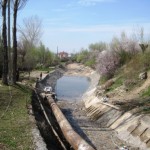
Lack of access to irrigation water has long been a source of tension in rural areas throughout the Kyrgyz Republic, particularly in southern regions. When inter-ethnic violence broke out in June 2010, competition for scarce natural resources became a flashpoint for conflict.
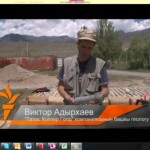
“These [uranium tailing storage facilities] were built incorrectly. They don’t meet standards. Water leaks into our soil. We have been saying this, but inspectors keep repeating that everything is clean,” complained a Chatkal district resident to an Azattyk Television crew. “In reality, the soil is polluted.”
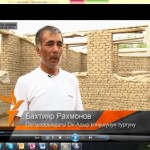
“My old man was shot, I was injured, and our house was robbed and destroyed. I applied for housing back then, but I am still being promised things [two years later],” says Rahminisa Teshebaeva, a 75-year old resident of Osh, in an interview to Radio Azattyk aired on July 26, 2012.
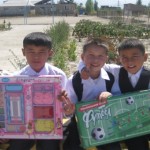
For many children in the 40 new unregistered migrant settlements outside of Bishkek, the capital of Kyrgyzstan, access to school is restricted by poverty and a lack of legal residency. Mamasabyt Raiyimberdy uulu is one of these children. At 13, he was illiterate and had never attended school because he needed to work in the bazaar to make money for his family. To add to the meager wages his mother earned by selling bananas, Mamasabyt needed to earn about $4 per day, which he did by collecting and selling used boxes.
To reach out to kids like Mamasabyt, USAID has started providing small grants to non-governmental organizations (NGOs) working in these settlement areas. One of the 10 participating NGOs, the Councils for Human Rights, organized a two-month Summer Education Camp for 21 school dropouts from six new settlements around Bishkek. These camps aimed to provide access to a friendly learning environment for children from socially vulnerable families, as well as to create a positive environment for studying, playing sports, helping each other and making friends.
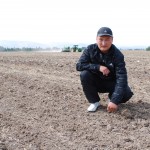
Kanybek Imankulov, a father of four, owns 45 hectares of non-irrigable land in Luxembourg village in northern Kyrgyzstan. A farmer since 1995, Imankulov grew mostly field crop -alfalfa, cereals, and corn-but had unimpressive results. Though average crop yields should have been around 4 metric tons per hectare, he only produced around half that.








Comment
Make a general inquiry or suggest an improvement.